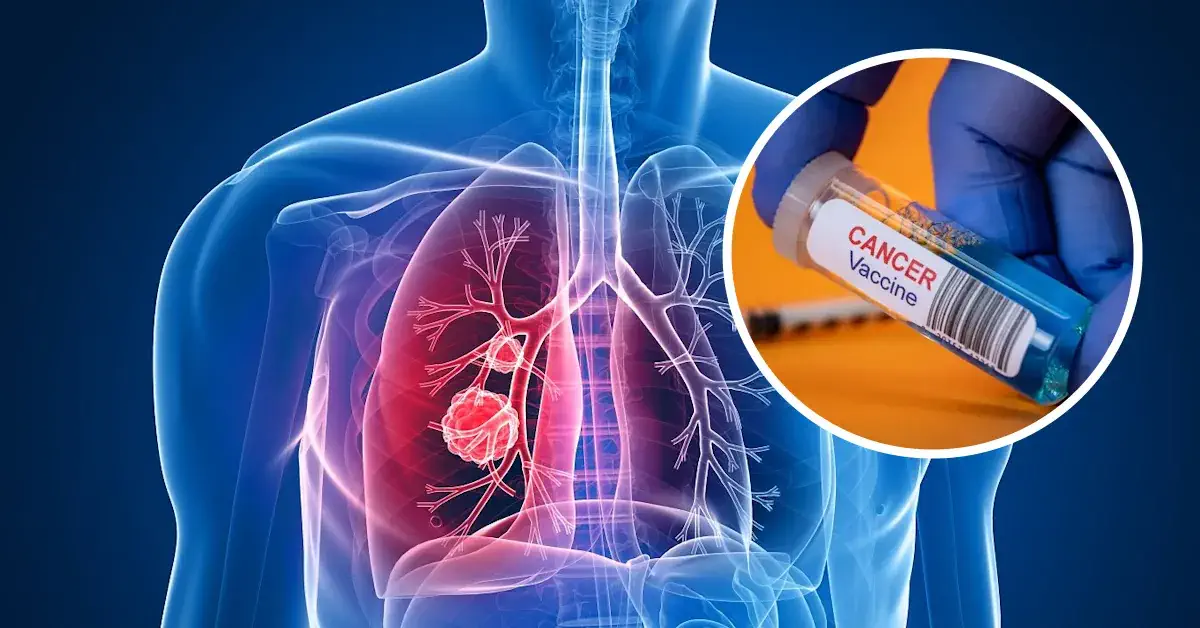
- The upcoming LungVax vaccine will use technology similar to the Oxford/AstraZeneca COVID-19 vaccine.
- The two-year project secured £1.7 million (around $2.1 million) to conduct laboratory research.
- The team will produce 3,000 doses of the vaccine targeting neoantigens, proteins associated with cancer, to neutralize them.
Leading scientists from renowned institutions such as the University of Oxford, the Francis Crick Institute, and University College London are working on a vaccine called LungVax. This vaccine aims to prevent lung cancer, a deadly form of the disease, especially in those at high risk.
The project has secured substantial funding of £1.7 million (approximately $2.1 million) for laboratory research and the initial production of 3,000 doses at Oxford’s Clinical Biomanufacturing Facility over two years.

How Does the LungVax Vaccine Work?
LungVax targets specific traits found in lung cancer cells. These cells produce “red flag” proteins known as neoantigens, resulting from mutations in the cell’s DNA that cause cancer. The vaccine includes a DNA strand that teaches the immune system to identify these neoantigens.
This helps the immune system to attack and eliminate abnormal lung cells, potentially preventing the development of lung cancer.
The immediate aim is to confirm in lab experiments that LungVax effectively stimulates the desired immune response. If successful, this will pave the way for clinical trials. Later on, the vaccine may be expanded for larger trials aimed at high-risk groups, such as certain age groups of smokers or former smokers.
Lung cancer poses a significant public health problem. In the UK, about 48,500 new cases arise each year, with 72% linked to smoking, the leading preventable cause of cancer worldwide. This highlights the need to develop preventive strategies alongside efforts to help people quit smoking.
Insights from Experts on LungVax
Professor Tim Elliot, leading the LungVax research at the University of Oxford as the Kidani Professor of Immuno-oncology, highlights the challenge the immune system faces in distinguishing between healthy and cancerous cells.
“Cancer is a disease of our own bodies and it’s hard for the immune system to distinguish between what’s normal and what’s cancer,” Tim Elliot.
If we can replicate the kind of success seen in trials during the pandemic, we could save the lives of tens of thousands of people every year in the UK alone.” he suggests.

Professor Sarah Blagden, an expert in Experimental Oncology at the University of Oxford, highlights how important it is to catch cancer early for better treatment. She believes that LungVax is a big step forward in stopping lung cancer before it starts.
We are developing a vaccine to stop the formation of lung cancer in people at high risk. This is an important step forward in preventing this devastating disease.” Sarah Blagden
Professor Mariam Jamal-Hanjani, from University College London and the Francis Crick Institute, who will oversee the LungVax clinical trial, recognizes the alarmingly low 10-year survival rate for lung cancer.
She believes that LungVax research, combined with early detection through lung health screenings, has the potential to significantly improve this prognosis.
“We think the vaccine could cover around 90% of all lung cancers, based on our computer models and previous research, and this funding will allow us to take the vital first steps towards trials in patients. said Professor Mariam Jamal-Hanjani
Michelle Mitchell, Chief Executive of Cancer Research UK, sees this innovative vaccine project as a sign of remarkable progress in medical research. It signals a hopeful future where cancer prevention becomes more achievable.
Lola Manterola, President of the CRIS Cancer Foundation, describes LungVax as groundbreaking and emphasizes how technology and immunological knowledge are increasingly utilized to initiate cancer prevention efforts.
LungVax is a preventive measure and does not replace quitting smoking as the main way to lower lung cancer risk as explained by Professor Mariam Jamal-Hanjani:
LungVax won’t replace quitting smoking as the top way to lower your risk of lung cancer. But it could help prevent some of the earliest cancers from developing in the first place.












